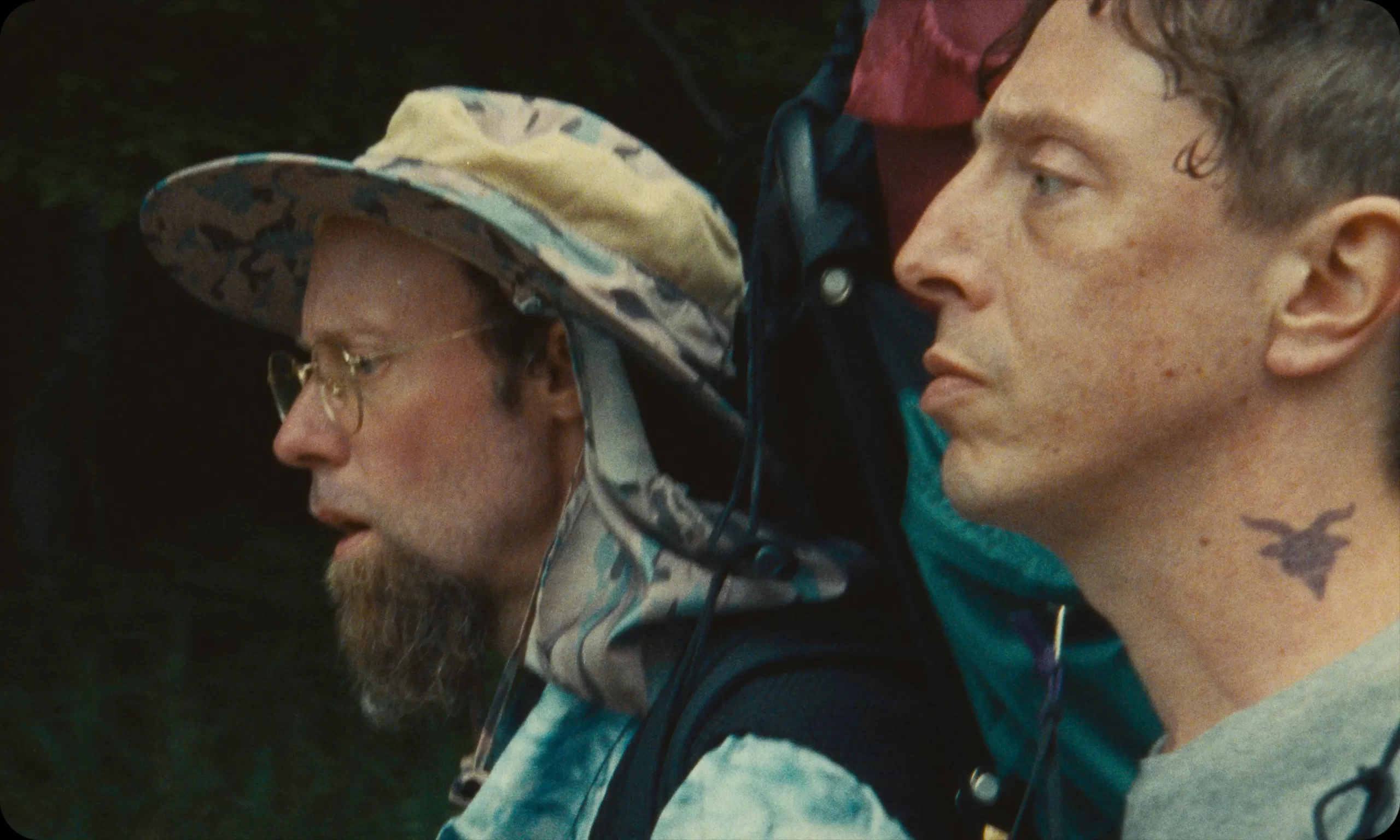Vulcanizadora and Joel Potrykus’ Uneasy Catharsis
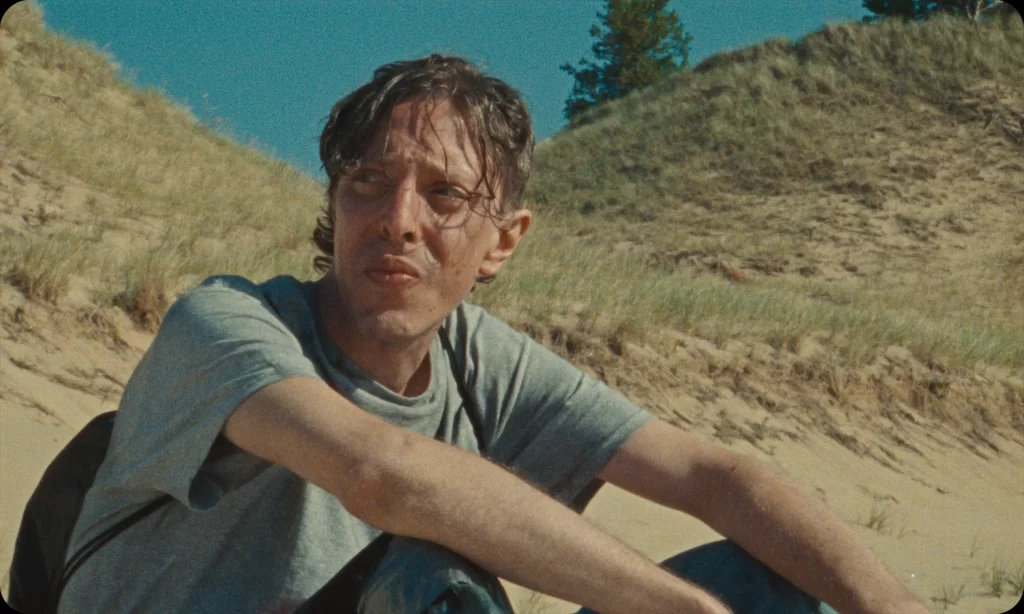
When I sat down with Joel Potrykus ahead of Vulcanizadora‘s screening at CUFF 2025 (Calgary Underground Film Festival), the conversation quickly took on the same unhurried, contemplative tone that defines his latest film. Ten months into a long festival run, Potrykus seemed almost ambivalent about the potential upcoming theatrical release. His focus, he made clear, had always been on making the film itself – not promoting it. For him, the work is the reward. Vulcanizadora isn’t just another entry in his indie catalogue; it is, by his own admission, his “most personal and bleakest” work yet. As we discussed filmmaking, fatherhood, friendship, and failure, it became clear: this was less an interview about a movie and more a glimpse into the inner life of a director who creates as a way of surviving.
What is Vulcanizadora About?
Vulcanizadora is a brutal, blackly funny descent into male loneliness, guilt, and fractured friendship. The film follows two old friends – played by Potrykus (Derek) and long-time collaborator Joshua Burge (Marty) – as they trudge into the Michigan woods on a grim, unclear mission. As their plans unravel, the film shifts from a scrappy slacker comedy into something heavier and far more unsettling.
After a long festival run, which included stops at Tribeca, Fantasia, Sidewalk, and Oak Cliff (where it won Best Narrative Feature), Vulcanizadora is set for a limited theatrical release via IFC Center and Oscilloscope Laboratories. Though the release is imminent, Potrykus himself remains refreshingly uninterested in industry mechanics. “I’d rather just bury it in the ground and let some kids discover it in 10 years,” he joked.
Vulcanizadora and Buzzard – Is it a Sequel?
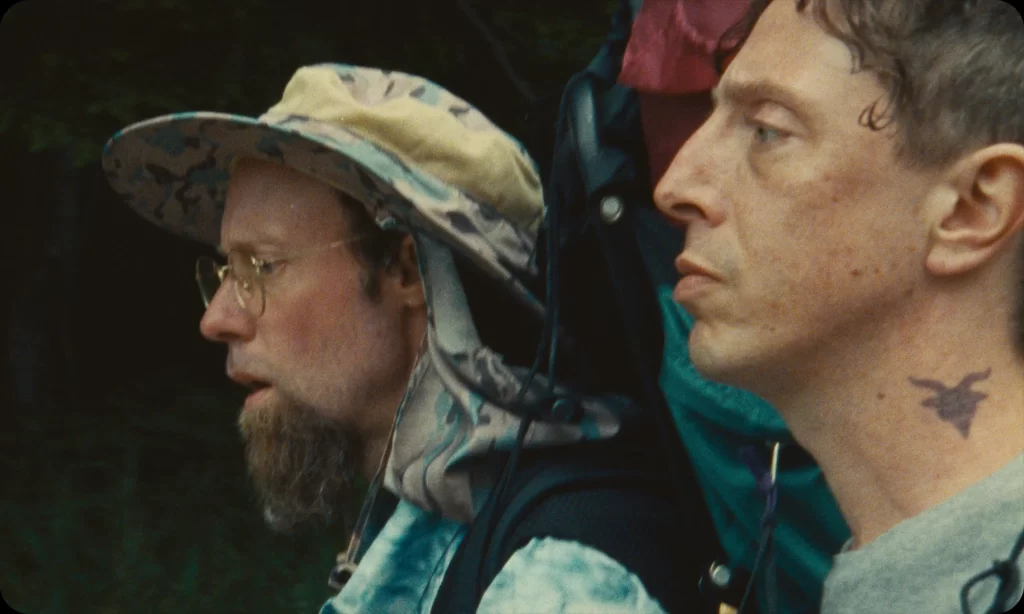
Though he resisted calling it a sequel, Vulcanizadora sees the return of Marty and Derek from Buzzard. Originally conceived as two new characters, Potrykus realized during the writing process that it made perfect sense to revisit them a decade later. Still, he was adamant: “This is not a sequel. It’s just another story about these two guys, like a different James Bond mission.”
Their reappearance isn’t about dramatic transformation; it is about the slow, almost imperceptible wear of time. Life hasn’t improved for Marty and Derek – it has simply dragged on, hollowing them out bit by bit.
The Juxtaposition of Calm and Chaos
From the opening credits, Vulcanizadora announces its intentions: the juxtaposition of grand opera, screaming heavy metal, and the distant wail of ambulances signals a film that will shuttle us through emotional peaks and valleys. The inspiration for this chaotic pairing, Potrykus explained, traces back to Bill & Ted’s Excellent Adventure and Michael Haneke’s Funny Games – both of which left an imprint on how he understood music’s cinematic power. “Opera and heavy metal – it’s the same vein,” he said. “People belting it out, making it big and theatrical and intense.”
Chaos is mirrored throughout the film: the frenetic conversations between Marty and Derek are framed against the overwhelming stillness of nature. Vulcanizadora is unafraid to hold static shots, forcing viewers to linger with these broken men. Dialogue is dry and often darkly funny. Death hovers over the film – sometimes directly, sometimes through casual, almost tossed-off conversations. In one scene, Marty describes a version of hell where “everyone is sad and nervous forever,” a line that captures the quiet horror of living with anxiety and depression. It is one example of many that underlines Potrykus’ ability to bring something powerful forward without even trying.
The Cinematography of Vulcanizadora
Shot on 16mm film by Adam Minnick, Potrykus’ best friend since high school, Vulcanizadora embraces imperfections as part of the film’s texture. Their collaboration is built on musical metaphors – they wanted the visual structure to feel like a Pixies song, swinging between loud, messy close-ups and wide, expansive landscapes. This tension is especially evident during the film’s transition from forest to beach: wide shots that watch the characters move through the woods give way to suffocatingly tight close-ups during the beach monologues. Potrykus, more drawn to close-ups, and Minnick, a lover of wide shots, found a natural tension that mirrored the emotional shifts within the story.
Minnick and Potrykus’ dynamic is rooted in a long-standing friendship and artistic trust. “It’s the best to have your friends with you on set,” Potrykus said, reflecting on the fact that he doesn’t know how to make a movie without the familiar rhythms of his “band.”
Indie Filmmaking and “The Band”
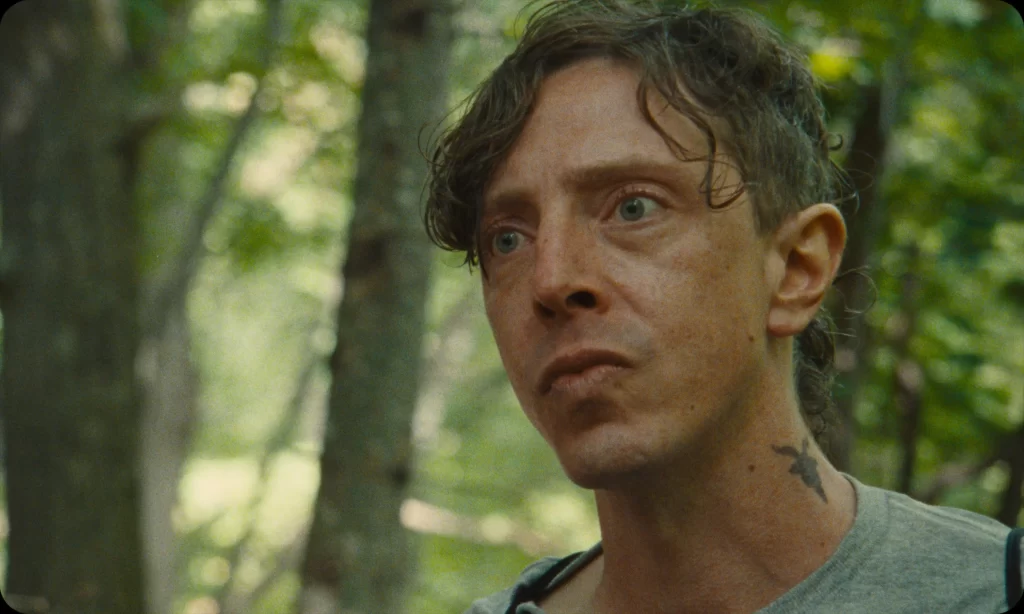
If there is one thing Potrykus holds sacred, it is independence. His “band” of collaborators – Joshua Burge, Adam Minnick, and others – remains intact because he refuses to scale up in ways that would dilute their shared vision. Offers from bigger studios, or even a shift toward more polished indie banners like A24, hold little appeal. As Potrykus put it, he’s “never watched a Star Wars movie and was like, I want to make that,” and has no interest in aspiring to films like Mickey 17.
In a world where it is increasingly difficult to stay true to a personal vision while surviving in the industry, his approach feels almost radical. Potrykus would rather keep his movies small and uncompromising, even if that means fewer opportunities for mainstream success.
On Becoming a Father
Becoming a father fundamentally reshaped Potrykus’ storytelling, which we see in Vulcanizadora, both in form and function. In fact, his son, Solo Potrykus, makes his acting debut here. Directing Solo proved to be a profound experience: instead of monitoring shots through a screen, Potrykus stood beside the camera and watched his son with his own eyes, knowing he could watch the footage later – but this was his one chance to see the moment without a barrier between them.
“It was beautiful, man,” he said. “Being responsible for another human being’s life is heavy. That’s what came out into the script without me even realizing it.”
Today, Solo isn’t chasing acting, but he has discovered a love for documentary filmmaking, often shooting footage with his toy camera and editing it with his dad’s help.
Vulcanizadora on Guilt and Loneliness
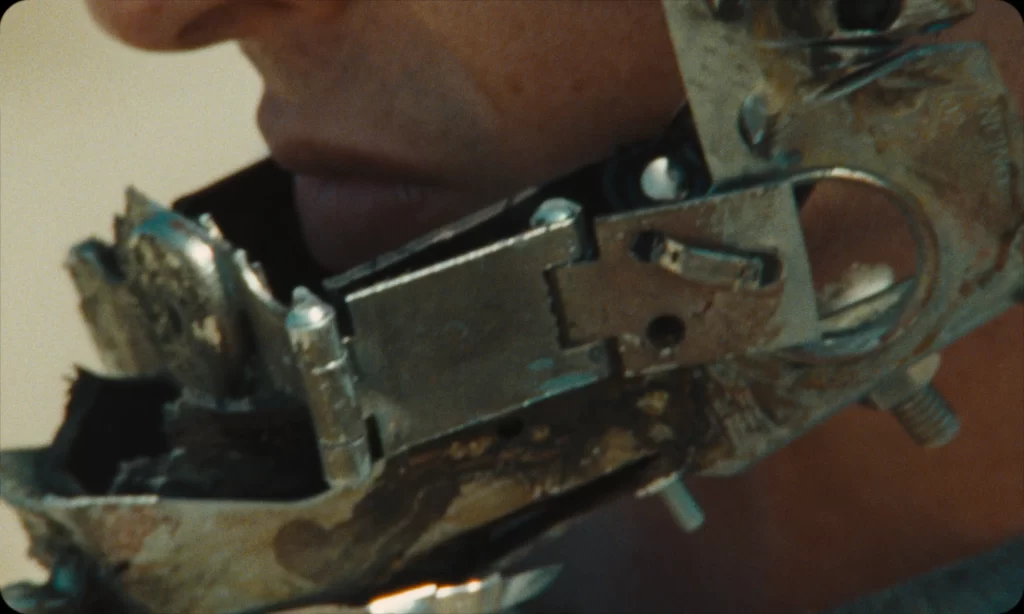
One of the most revealing aspects of our conversation was Potrykus’ admission that he never starts a film with clear thematic goals. “I never know what the movies are about until they’re actually done – until dudes like you tell me what they’re about,” he said. For him, filmmaking is a way to purge the “yucky” feelings – the guilt, the anxiety, the creeping dread – that otherwise have no outlet.
Vulcanizadora ultimately feels like a story about what happens when people have no way to process those feelings. Potrykus can pour his demons into film; Marty and Derek cannot. They drift, disconnected and unhealed, desperately needing an outlet. It’s the cinematic equivalent of the old joke about the lengths men will go to instead of going to therapy – and the consequences are devastating.
A Robert Pattinson Easter Egg
If you stay through the credits, you will see a list of special thank-yous, with a name that might stand out: Robert Pattinson. As a fan of Buzzard, Pattinson reached out through mutual contacts — specifically via Josh Safdie — to offer encouragement and feedback during Vulcanizadora‘s early stages. “Josh Safdie was like, hey, can I give Rob your email address?” Potrykus recalled. Initially, Potrykus wrestled with the idea, half-jokingly wondering, “Is this my sellout moment? Am I now gonna kick Josh out and cast Rob?”
Though there was a fleeting thought of developing a “brother movie” with Burge and Pattinson, it ultimately never materialized. Pattinson, busy developing projects at HBO, instead offered helpful script notes and became an informal sounding board. “He’s a good dude, man,” Potrykus said. “He’s just a humble guy who likes really cool movies and wants to help people make cool movies too.”
It is a reminder that art — true, uncompromised art — still finds its way to those who are looking for it, even if mainstream narratives would have us believe otherwise.
Final Thoughts on Vulcanizadora
Vulcanizadora stands as Joel Potrykus’ most serious and personal film to date. It is not a film that offers hope. Instead, it prefers to have us sit in silence after that hope has drained away.
Vulcanizadora Trailer
Read More:

